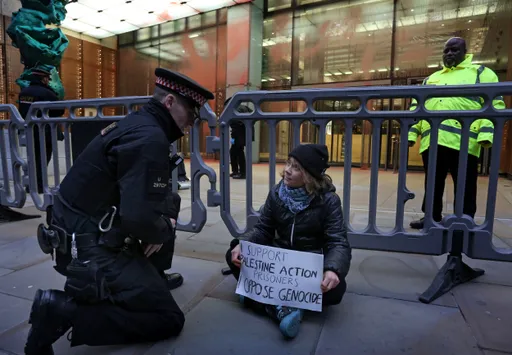Kiev and its European allies have demanded that they be included in any peace negotiations after US President Donald Trump spoke by phone with Russia's Vladimir Putin and said Ukraine could neither have all of its lands back nor join NATO.
Russia's financial markets soared and the price of Ukraine's debt rose at the prospect of the first peace talks since the early months of a war soon to enter its fourth year.
But Trump's unilateral overture to Putin, accompanied by apparent concessions on Ukraine's principal demands, raised alarm for both Kiev and the European allies in NATO who said that they feared the White House might make a deal without them.
In a blunt address to reporters at NATO talks in Brussels on Thursday, EU top diplomat Kaja Kallas insisted that no deal "behind our backs" could work, as she accused Washington of "appeasement" towards Russia.
"Any agreement without us will fail because you need Europe and Ukraine to also implement the agreement," Kallas said.
"Any quick fix is a dirty deal."
Ukrainian Foreign Minister Andrii Sybiha said: "Nothing can be discussed on Ukraine without Ukraine or on Europe without Europe."
Trump, who made the first publicly acknowledged White House call with Putin since the February 2022 full-scale invasion, and then followed it up with a call to Ukrainian President Volodymyr Zelenskyy, said he believed both men wanted peace.
But the Trump administration also said openly for the first time that it was unrealistic for Kiev to expect to return to its 2014 borders or join the NATO alliance as part of any agreement, and that no US troops would join any security force in Ukraine that might be set up to guarantee a ceasefire.
Russia seized Ukraine's Crimea peninsula and its proxies captured territory in the east in 2014, before its full-scale invasion in 2022 when it captured more land in the east and south.
Ukrainian officials have acknowledged in the past that full NATO membership may be out of reach in the short term and that a hypothetical peace deal could leave some occupied land in Russian hands.
But Kiev and its European allies made clear they were alarmed by Trump having opened negotiations with apparent concessions to Moscow, without first agreeing on a common position.
Ukraine’s NATO path ‘irreversible’
Syrbiha, the Ukrainian Foreign Minister, said Kiev remained committed to applying to join NATO, which he said was the simplest and least expensive way the West could provide the security guarantees needed to ensure Russia would not attack again.
"All our allies have said the path of Ukraine towards NATO is irreversible. This prospect is in our constitution. It is in our strategic interest."
Kallas said it would not be "good tactics" to give in to Russian demands before the start of negotiations. Europe would continue to support Ukraine if it rejected a deal that had been agreed between Moscow and Washington behind its back, she said.
"Why are we giving them (Russia) everything that they want even before the negotiations have been started?" said Kallas. "It's appeasement. It has never worked."
The Kremlin, for its part, said it was "impressed" by Trump's position, which it contrasted with that of his predecessor Joe Biden.
"There is a political will, which was emphasised during yesterday's conversation, to conduct a dialogue in search of a settlement," Kremlin spokesman Dmitry Peskov said.
"The previous US administration held the view that everything needed to be done to keep the war going. The current administration, as far as we understand, adheres to the point of view that everything must be done to stop the war and for peace to prevail."
Asked about European demands to be represented in Ukraine peace talks, Peskov said: "As for Europe's participation, there is no understanding yet of the format of a possible negotiation process, so it is premature to talk about it."
























